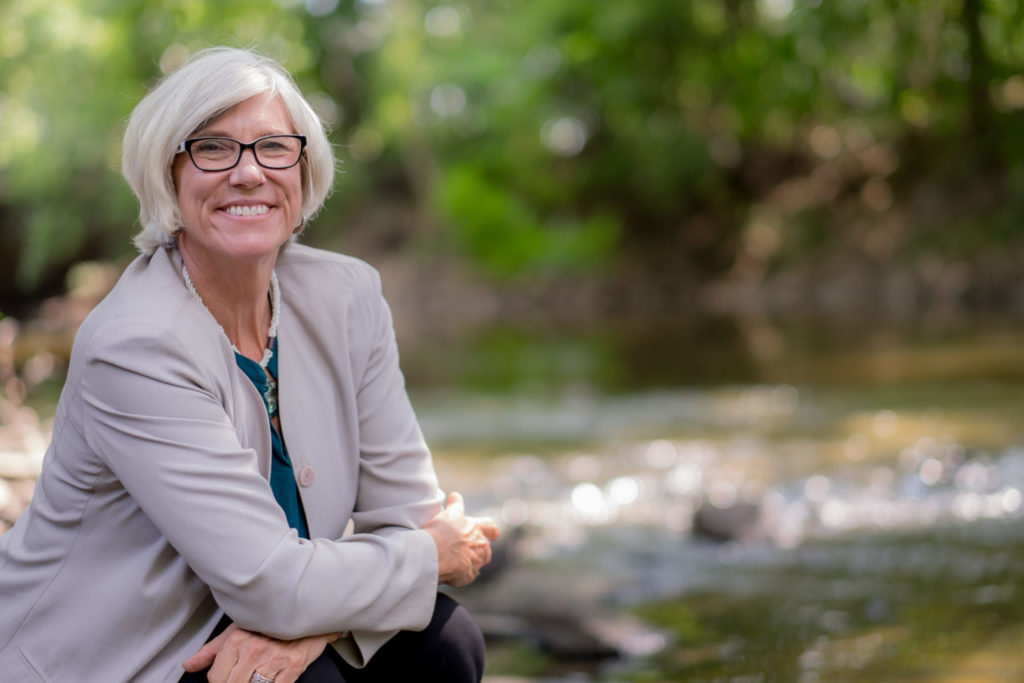heading
2016: Professor Joan Rose
Professor Joan Rose of the USA is named the 2016 Stockholm Water Prize Laureate for her tireless contributions to global public health; in assessing risks to human health in water and creating guidelines and tools for decision-makers and communities to improve global health.

Professor Joan Rose holds the Homer Nowlin Chair in Water Research at Michigan State University. She has dedicated her professional life to water quality and public health safety and is a leading world authority on water microbiology.
On receiving news about the prize Professor Rose said: “I feel humbled. I am very honoured to be part of a list of such distinguished past winners. The Prize calls attention to the most important issues around water in the 21st century, and for me, that is water quality.
In its citation, The Stockholm Water Prize Nominating Committee says that “The nexus of water-related microbiology, water quality and public health is rife with uncertainty – in both theory and practice. The world is blessed with few individuals who can tackle the increasing and changing challenges to clean water and health, starting from state-of-the-art science through dedicated and original research, then moving to professional dissemination, effective lobbying of the legislative arena, influencing practitioners, and raising the general awareness. Joan Rose is the leading example of this extremely rare blend of talents.”
“I have always been motivated by the principles of public health and how to prevent disease. A key barrier, our water infrastructure, is crumbling or non-existing in many parts of the world. The global population unserved by sewage treatment is counted in the billions” says Professor Rose.
It is estimated that around 1000 children under five die every day-from diarrhoeal diseases, one of the leading causes of child mortality but only one of the illnesses caused by poor water quality.
There are more than two billion people in the world who lack adequate sanitation and over one billion lack access to safe drinking water. The WHO says that 842 000 deaths from diarrhoeal diseases each year could be prevented by improved water, sanitation and hygiene.
“We need to develop a global water curriculum to educate the next generation of problem solvers. The need is enormous,” adds Professor Rose.
“We need to develop a global water curriculum to educate the next generation of problem solvers. The need is enormous.”
“Professor Rose embarked long ago on a quest for securing the health of all human beings. But she did not stop at that. She expanded it to ensure that water also supports health in the aquatic ecosystems. Professor Rose has continued to show dedicated leadership in making the world a better place for both humans and other species that share the planet,” says SIWI’s Executive Director Torgny Holmgren.
Professor Rose is widely regarded as the world’s foremost authority on the microorganism Cryptosporidium, an intestinal parasite which exists in both humans and animals. It cannot be killed by chlorine, lives for several months inside its host and in extreme cases can be fatal. Rose and her team, whom she calls ‘water detectives’, investigate waterborne disease outbreaks globally to determine how they can be prevented or stopped. She was the first person to identify the widespread occurrence of Cryptosporidium in water supplies in 1988.
Interview with Joan Rose
More about Professor Joan Rose
Professor Rose was key in establishing the 2004 WHO Drinking Water Standard; a paradigm change which impacted most countries worldwide. She worked in Malawi and Kenya to help translate this Standard into local regulation. UNESCO’s International Hydrological Program asked for her leadership, to help them meet goals of resource management and capacity building for Member States. She chaired a specialist group within the International Water Association to ensure understanding and incorporation of updated engineering standards in countries across the world, at state and national levels.
Her expertise in identifying and prioritizing issues of water quality led to the legal implementation of the Great Lakes Water Quality agreement. She chairs Singapore’s Water Audit Panel of the influential Public Utilities Board and advises governmental water departments in both Canada and Korea. She also established the Global Water Pathogens Project, an online collective of 140 water-related scientists.